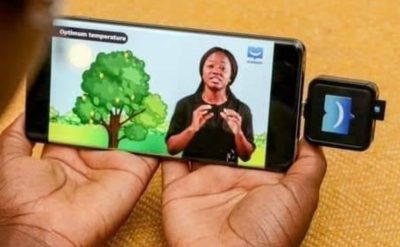uLesson raises $15m to expand team and improve education services
uLesson, African edutech startup, has secured a $15 million Series-B investment from global investors to expand team.
Sim Shagaya, chief executive officer, ULesson, on Thursday in Lagos, said the investment is to provide high quality and affordable education for all Africans.
Series B financing is the second round of funding for a business through investment, including private equity investors and venture capitalists.
It generally occurs when the firm has accomplished certain milestones in developing its business and passed the initial startup stage.
According to Shagaya, uLesson will use the fund to invest in product development, strengthen its core technology and add cohort-based learning features with the capital raised.
He said that uLesson would expand on its flagship products — science and mathematics contents and would add social sciences, financial accounting to the secondary level content library, qualitative and quantitative reasoning to the primary level.
Shagaya further said the organisation is glad to have gone this far and have these investors on board as this would go a long way in improving education technology.
“We’re thrilled to achieve this major milestone which will take us further in bringing high quality and affordable education to all Africans,” he said.
“We’re delighted to be joined by seasoned investors such as Tencent, who brings a wealth of experience from their investments in education technology.
“Backed by incredible partners, we can accelerate our learning to serve the African edtech market more effectively.”
Also speaking, David Frankel, managing partner and founder, Collective, said that the incredible talents on the continent had been held back for too long by lack of opportunities.
“I truly believe entrepreneurs can change the world,” Frankel said.
“At Founder Collective, I’ve watched Uber upend transportation, Coupang re-envision eCommerce, and I have every hope that uLesson will set new standards for education in Africa.” (The Cable)


